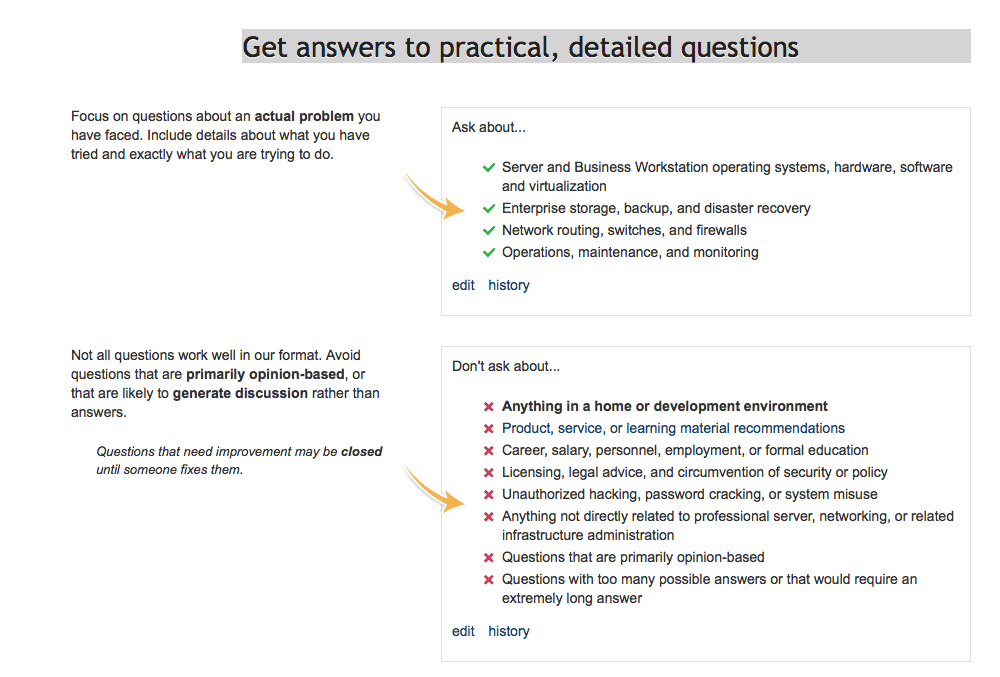One could think About page is such a place, but it is not.
One would think that. One would also hope that One would read the entire About pageAbout page, and in doing so One would discover this section:

which generally mirrors the contents of the official Help Center pagethe official Help Center page (which, as Chris pointed out, is kinda hard to find).
I'm not trying to be mean here (though it's very tempting to be), but this kind of thing is what we mean when we say Do Your Research.
As a professional system administrator (see also here) you need to think on your feet - to show that you are capable of that you need to do the groundwork and being at least a partially formed idea to your question. Ask Google before you ask us. ("Pick one for me: NTFS or FAT" doesn't pass muster, for example - 30 seconds on Google would have answered this for you).
As for what to do when a question is poorly received, that's pretty simple: Go sit down and think about what you've done. Understand why your questions are not doing well here ("I'm not showing any research effort", "I'm asking for a silver spoon solution", "My question is too vague", etc. - these are all incredibly common problems but by no means an exhaustive list).
When you understand why your question is not doing well you can either fix it (edit) or delete it and ask a better one (deleting and re-asking is often a better approach if your question has been buried in downvotes).
